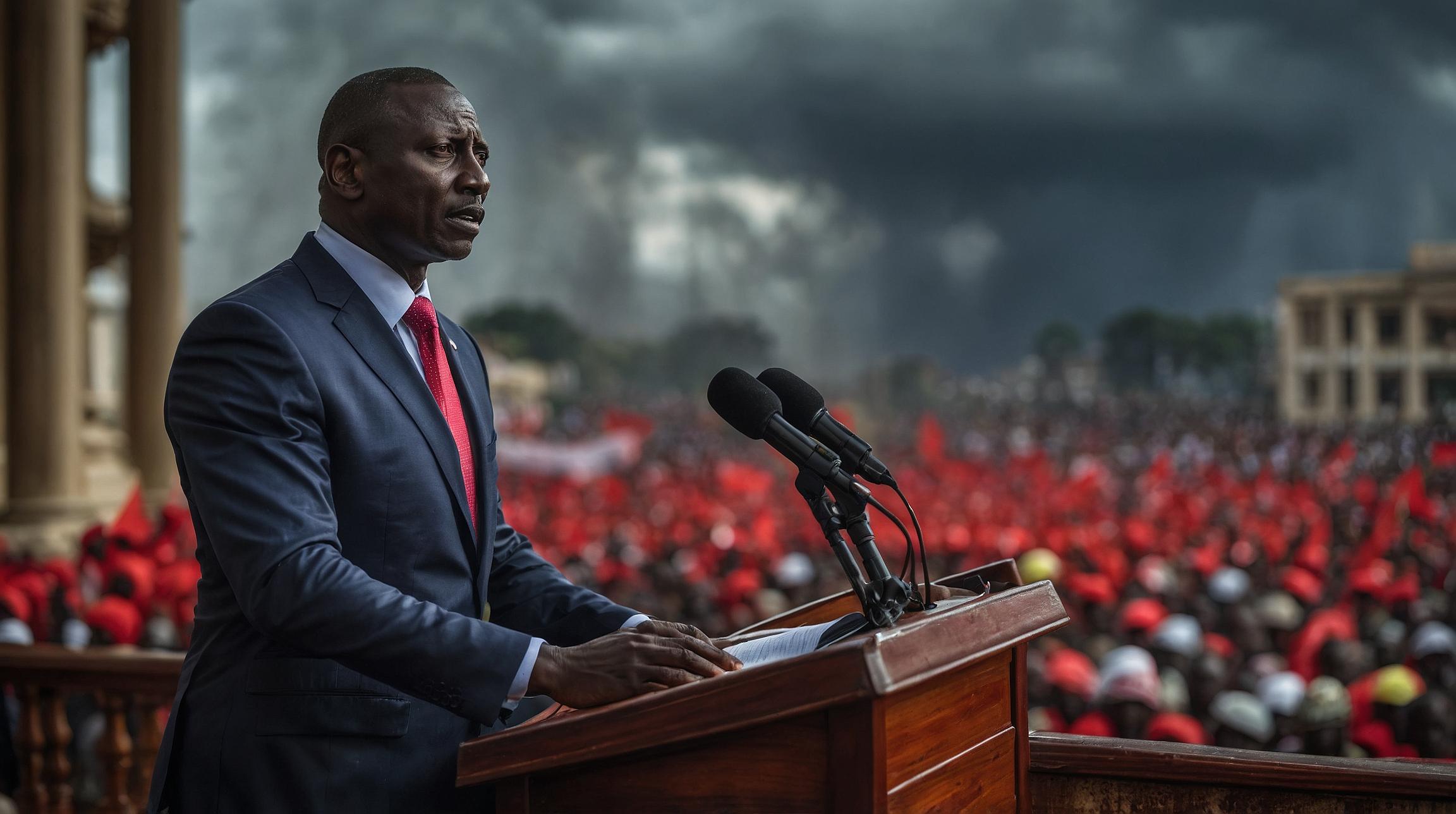Kenya's President Ruto Withdraws Controversial Finance Bill Amid Protests
Kenya's President, William Ruto, has backed down from signing a controversial finance bill that sparked massive protests. This bill, if signed, would have led to higher taxes and more expensive goods.
"I won't sign the 2024 finance bill and it will be withdrawn," Ruto declared in a televised address on Wednesday, saying, "The people have spoken."
Background of the Finance Bill
The finance bill included tax hikes that would make necessities like bread and nappies more expensive. This upset many people, especially the youth, who started protesting online and quickly moved to the streets.
Protests Turn Deadly
These protests were peaceful at first but turned violent after the Parliament of Kenya passed the bill. Police used tear gas, water cannons, and rubber bullets to control the crowds. Some reports say live bullets were fired as well. As a result, protesters stormed Parliament and set it on fire. Ruto then called in the military to control the situation.
The Kenya Medical Association stated that at least 23 people were killed, and another 30 were treated for bullet wounds. Hospitals in Nairobi treated 160 people for various injuries, including bullet wounds.
Public Response to Ruto's Announcement
Ruto’s decision to withdraw the bill is seen as a big win for the protestors, who had been demanding a change in the political system. Activists like Hanifa Adan vowed to continue peaceful protests to honor those killed in the clashes, saying, "You cannot kill all of us. Tomorrow we march peacefully again as we wear white, for all our fallen people."
Skepticism and Doubts
Despite Ruto's announcement, some protest leaders and citizens remain skeptical. Al Jazeera's Malcolm Webb reported that many still plan to protest on Thursday due to ongoing mistrust.
A well-known lawyer mentioned that for Ruto's rejection of the bill to be official, he must formally communicate this to Parliament.
Reactions from Analysts
Stella Agara, a tax reform campaigner, welcomed Ruto’s decision, calling it "an extreme relief." She believes that this opens the door for negotiations and perhaps a completely new bill.
Agara emphasized that Ruto needs to communicate effectively with the younger generation, who want the entire bill dropped, not just amendments.
Ruto's Future Plans
Ruto, who promised to reduce living costs when he took office in 2022, previously argued that the tax hikes were necessary to reduce reliance on foreign debt, which is 70% of Kenya’s gross domestic product (GDP).
What's next for Ruto and the protesters remains unclear. The protests planned for Thursday might still go on as people wait to see Ruto's next steps.
Explanation of Terminology
- Finance Bill: A proposed law related to government taxes and spending. This bill included tax increases.
- Tear Gas, Water Cannons, Rubber Bullets: Tools used by police to control large crowds.
- Gross Domestic Product (GDP): A measure of a country's overall economic output and health.
Understanding these terms helps in grasping why the bill led to such strong reactions from the public and what it could mean for their daily lives. For example, higher taxes on everyday items can make bread more expensive, affecting household budgets.













